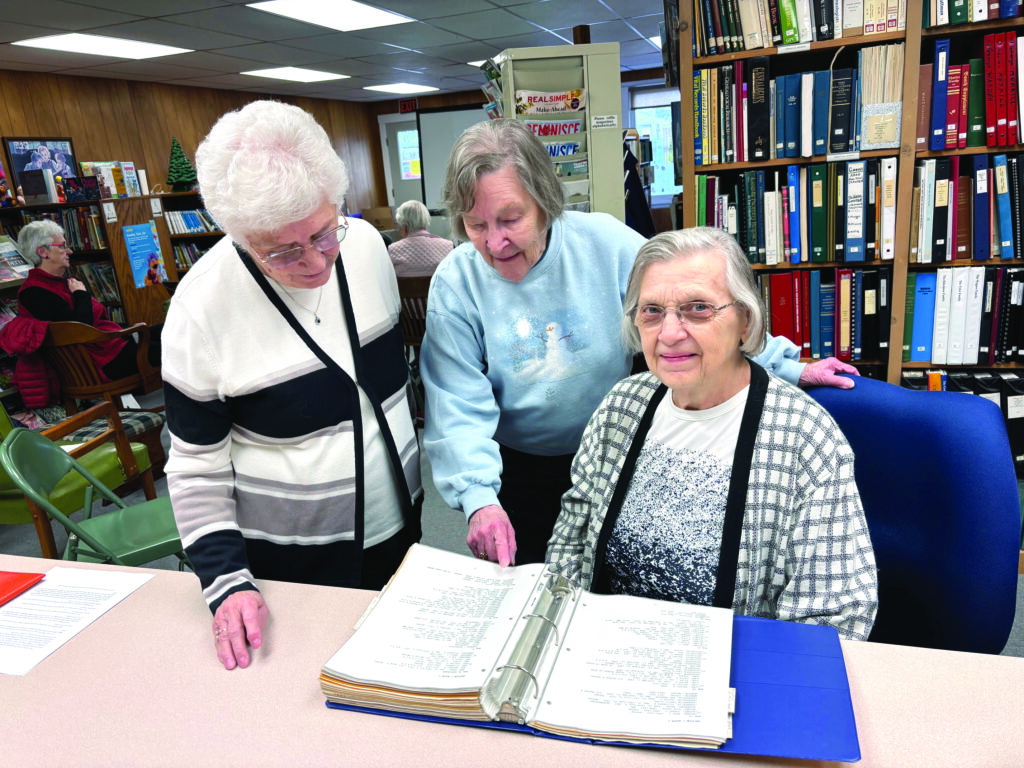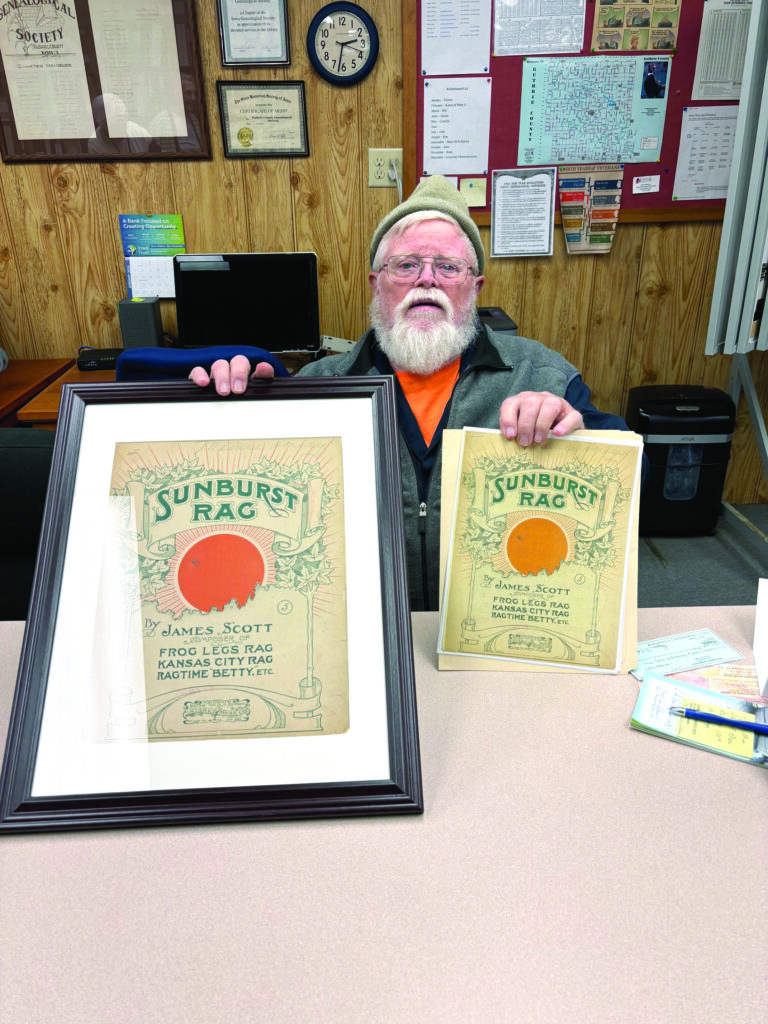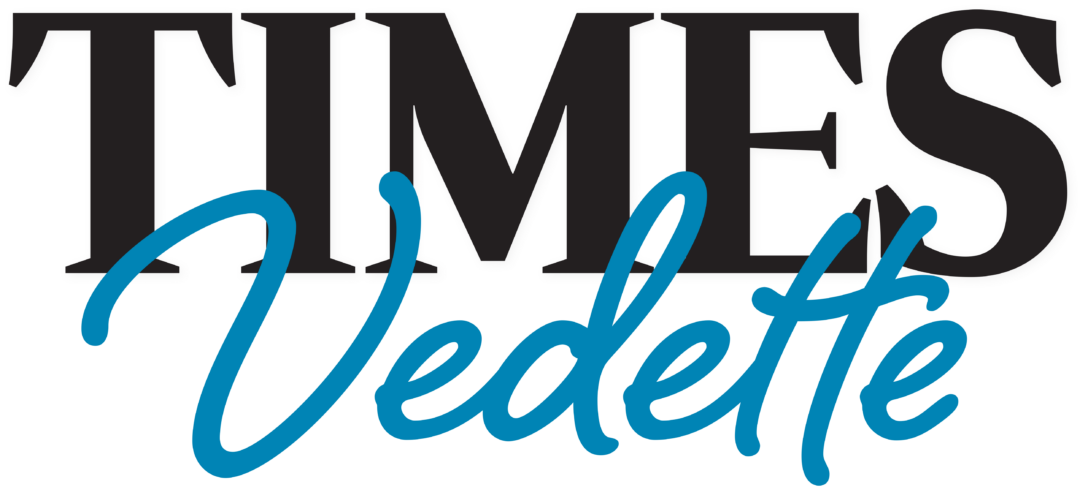Judy Kempf, Mary Morgan and Karen Onken review genealogical records.
Advice on how to dip your toes into the waters of genealogical research
By Rich Wicks | Guthrie Center Times
People seem to have an almost irresistible urge to know their roots. Somehow, it’s comforting to know what countries or areas our ancestors came from, and it can also be rewarding to find or re-discover relatives from near or far.
Traditionally, genealogical research was a tedious process, involving countless hours poring over dusty records. Today, one of the benefits of the information superhighway is that almost anything a person wants to research is available online, meaning that genealogical research can happen in your living room. Even so, the availability of information isn’t helpful unless one knows where to look.
Online options
For most people who choose to dip their toes into the waters of genealogical research, there is no need to spend much money, if any. If you eventually choose to dive into the deep end of research, it may be worthwhile to have a paid membership, but beginners are generally fine staying in the shallow end of the genealogy pool.
Some paid membership sites offer a free trial, which can be a great way to glean some information. Users are wise to remember that, unless canceled before the end of the free trial, the paid membership does automatically initiate, in most cases.
Many totally free websites can provide genealogical information. Perhaps the largest free genealogy website is FamilySearch.org. It is owned by the Church of Jesus Christ of Latter-Day Saints, and some record collections may not be viewable online. However, the site does allow viewing of U.S. Census records.
The U.S. Library of Congress (loc.gov) website offers free digitized images of archived newspapers, maps, photos and more.
The National Archives (archives.gov) is a free website that includes military, census, immigration and naturalization records.
The website of Ellis Island (statueofliberty.org) holds 65 million entries of U.S. immigration records.
For those interested in burial records and/or visiting gravesites of relatives, “Find A Grave” is an excellent resource. This website (findagrave.com) boasts more than 170 million burial and cemetery records. The site allows users to search for gravesites by location and name. For example, if a user selects “Iowa,” then “Guthrie County,” then “Guthrie Center,” then “Union Cemetery,” then “Smith,” within seconds, results show 31 gravesites matching these criteria. The user can then scroll through and click on any that are of interest.
Users can also search for a specific gravesite by name, and the results show any matching gravesites and the cemeteries they are located. Most of the results show a photo of that specific headstone, along with date of birth and death.
Offline options
The internet is not the only source for genealogical information. Two great local sources are the Guthrie Center Public Library and the Jamaica Public Library. Guthrie Center’s library offers a section with books, binders and records, including newspaper postings of births, marriages, deaths; historical information on various counties and towns; military and immigration records; and even high school yearbooks.
The most in-depth local source for genealogical information is the Guthrie County Genealogical Society. The Society’s materials are housed at the Jamaica Public Library, which has many shelves of obituaries, cemetery data, military records, and city, county and state records going back many generations. The Society also regularly holds monthly meetings at the Jamaica Library on the first Sunday at 1:30 p.m. New members are welcomed, with annual dues of $15 for an individual or $17.50 for a family membership.
Mary Morgan of Guthrie Center has been a member of the Society since 1980 and shares how she became interested in genealogy.
“For me, it was my mother-in-law,” she said. “She was born in this county in 1896, and she knew just about everything.”
Although Morgan didn’t discover any major surprises during her genealogical research of her own roots, she said, “You look a little further, and you find more and more.”
She admits that online sources have now become the most easily accessed, but Morgan stresses that libraries continue to have valuable resources that may not yet have been put online.
“I found a second cousin that I knew existed but didn’t really know her name,” she said. “I found where she was buried, and she was within two miles of where we go to a quilting retreat. So, I’ve gotten to go visit her grave. It’s little things like that that make it fun.”
After her years of research, Morgan has created a binder of various information about her family tree, and she’s shared this with many of her relatives.
Morgan described another highlight, saying, “I was an adopted child, and I have found that I have two half-sisters living, and it’s been a lot of fun having siblings. I’m the oldest. When I was a kid, I was always jealous.”
Morgan shared an interesting fact she uncovered, saying, “Guthrie County, per capita, sent the most men to the Civil War, compared to anywhere else.”
Paid services
A variety of companies offer DNA service, with one of the most recognizable being Ancestry.com. Most of these companies charge about $100 for a basic DNA genome analysis. The user receives a packet with instructions on how to collect and mail in a saliva sample. The company then develops a DNA profile from that sample and sends the results to the user. The basic profile includes information such as the various percentages of the user’s DNA that match to various countries or regions (example: 44% Norway, 40% Great Britain, 16% Sweden). The user then can opt for additional services at additional costs, such as being informed of likely relatives who have used the same service.
The popularity of mail-in genetic testing is growing rapidly. For about $100, anyone can find out about their ancestry and related health risks. But are there inherent risks of your DNA being part of such a database? Your DNA uniquely identifies you, but it also provides data that can identify close and distant relatives.
Some individuals worry they will discover things about their DNA that will be frightening — namely, the risks they run of contracting various diseases — and not know how to move forward with the information. Scientific skeptics contend the information may not even be as accurate as claimed and could lead people to make questionable health decisions. But there’s another type of risk that consumers aren’t focusing on as much, and it’s a big one: privacy.
For anyone who worries about intrusion of personal data, a DNA database could be the “Holy Grail” of information that could be misused in the wrong hands. There is nothing more private than your personal genetic information, and sending away for a personal genome kit means sharing your DNA with the testing companies. This means that hacking could access that data if it’s not properly protected. Meanwhile, some fear that the government may be able to access the data if/when desired.
Obviously, companies that provide DNA genome testing want to assure customer privacy and confidence, or such companies will not long survive. This is a relatively new technology, so privacy practices and laws are evolving.
Another fairly recent development is that consumers can access information on their dog or cat by DNA sample analysis. Various companies offer these services, which generally cost around $100, similar to the price for humans. The process appears to be similar also, with a saliva sample being collected, mailed in, and then results sent back. Pet DNA analysis helps determine which specific breed(s) may be represented in your pet, as well as any related information on how the various breeds impact individual pet health, temperament and/or appearance. Company websites even state that the results can help you track down Fido’s or Kitty’s long-lost extended family members, if you and your four-legged friend so choose.
An invitation
Dennis Davies, president of the Guthrie County Genealogical Society, welcomes anyone with an interest in genealogy to attend a meeting of the Society, free of charge. The members will be glad to answer questions or share advice. Later, if a visitor chooses to join the Society, that is welcomed, also.
When asked to provide advice to anyone with a budding interest in genealogy, Mary Morgan said, “Start with yourself and what you already know, as far back as you can go. And then go looking in the areas that they were in. You will find a lot, and you might even find that someone else in the family has done the history.”

Ron Gruber saves a piece of family history.
